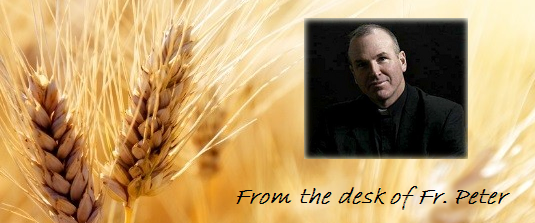Peace to you!
This weekend the Church celebrates the Solemnity of the Most Holy Body and Blood of Christ. As the Church teaches us, we know that the Eucharist is the source and summit of our Christian life. Echoes of the desert experience of our ancestors from the Book of Exodus remind us that God is ever-faithful in love and care for his people: it’s a Covenant relationship. Today, we have a much deeper knowledge and experience of God’s love and care for us in the Eucharist because it is the real and true presence of Christ that far surpasses the Manna of the desert which prefigured the Eucharist. Jesus established the celebration of the Eucharist as the New and Eternal Covenant.
Many Catholics, when they hear the words “Body and Blood of Christ,” visualize in their minds the consecrated Host and chalice at Mass. We remember (anamnesis: Greek) when Jesus instituted the Eucharist and the priesthood with his disciples and we enter more deeply into the New and Everlasting Covenant in Christ and the whole Christian family each time we celebrate it. St. Paul reminds of this when he tells us that “we, though many, are one body.” For us, Christ’s sacrifice and gift of the Eucharist is not only an event at Mass; it is not only the real presence of God hidden in the gifts of bread and wine, it is also a living relationship that each one of us has with God the Father, God the Son and God the Holy Spirit and with each other. The Eucharist brings us together as the Body of Christ to be the real and true sign of God’s presence in the world.
As we grow in our faith journey, we realize ever more deeply that the Eucharist makes the Church and the Church makes the Eucharist. This is a living reality that defies definition because it is a divine mystery. But we are caught up in it, we share in the very life of the Holy Trinity! Imagine what our Catholic family could be like if we were always consciously aware that each person is a living Host, a tabernacle of the real and true presence of God. Therese of Lieseux came to realize that she was a small Host given for the world in love. In one of the hymns that we sing at Mass, the words of a prayer of St. Augustine are quoted: “eating your body, drinking your blood, we become what we receive.” May we continue to grow in recognition of the love and goodness of God in the Eucharist and, like Therese, that we can live more perfectly the Eucharist in relation with other people.
God’s blessings to you always! +++ Fr. Peter

